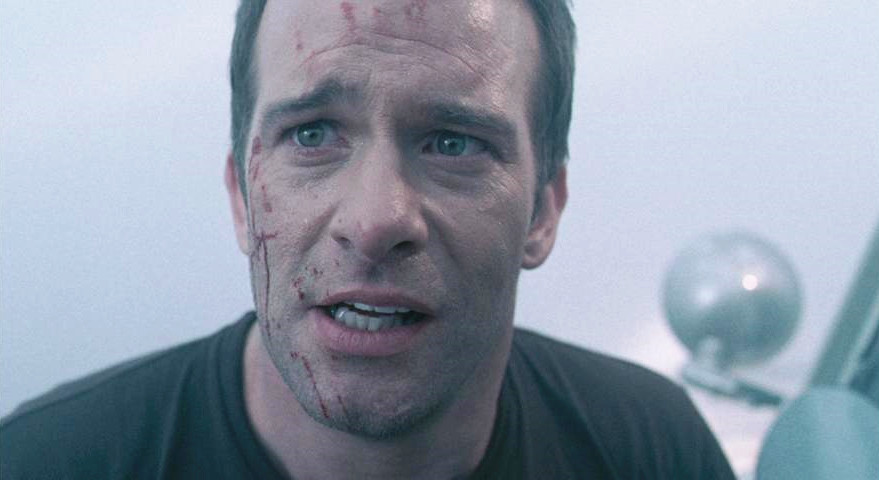
The ending of a film has a great impact on the way the viewer perceives the whole film. The feelings it leaves on its audience after the credits roll should hammer home its main themes and reason for existing in the first place.
A happy ending puts things in perspective and shows that certain things are worth fighting and struggling for. A happy ending leaves you with hope and optimism on whatever the subject of the story was about.
A depressing ending, however, does the same but in more bleak and pessimistic fashion. Life doesn’t always go as planned and some things will never be perfect or end the way we hope. A depressing ending can be just as powerful and, depending on how you look at it, can leave you with hope over the lessons learned.
The following list looks at some of cinemas most depressing endings that will undoubtedly ruin your day and leave you pondering about the worst aspects of humanity. As we have to describe exactly what happens in these endings, there will be of course spoilers, so proceed with caution.
10. The Road (2009)
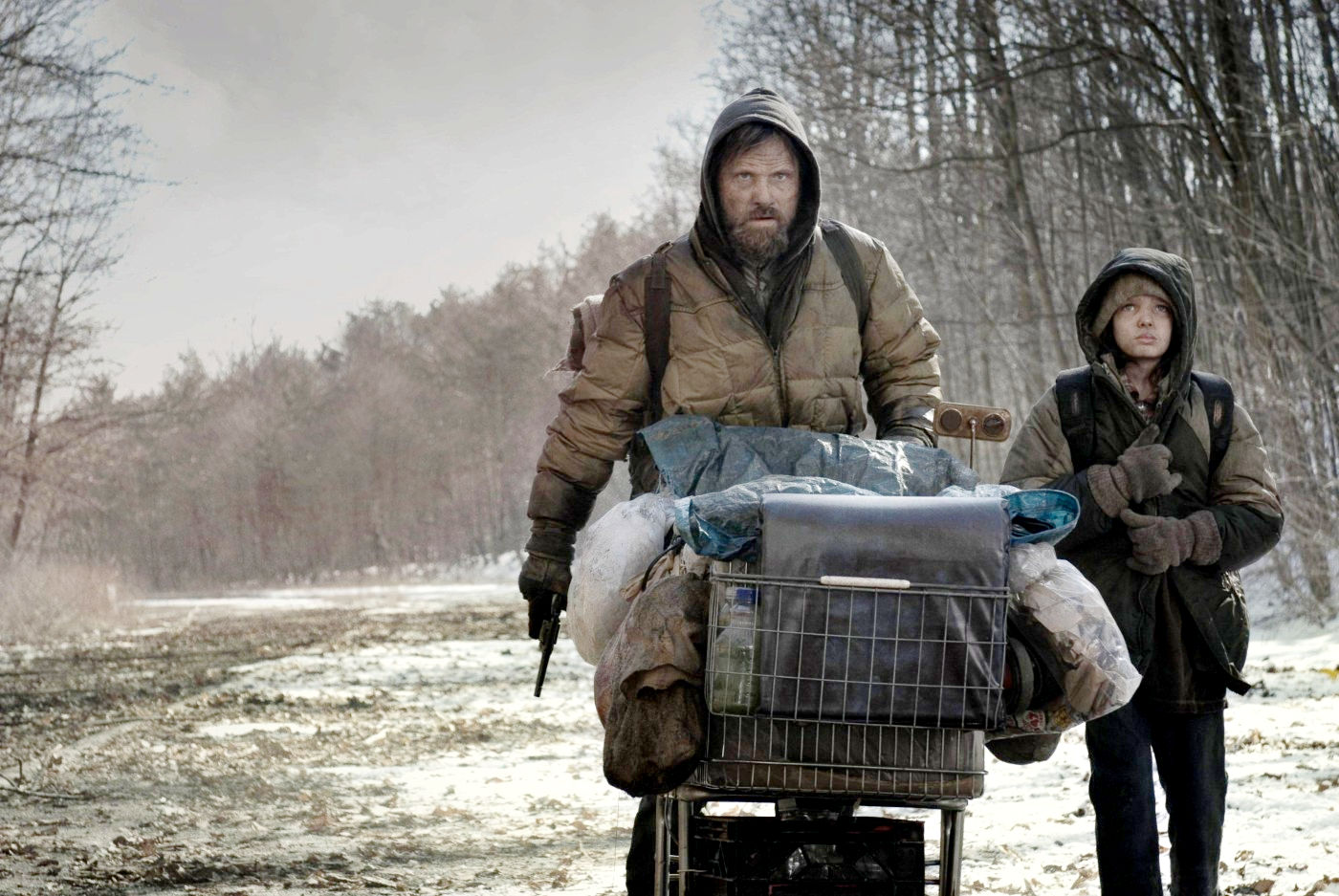
What’s it About? Based on Cormac McCarthy’s most personal novel, “The Road” is a touching yet bleak post-apocalyptic drama that looks at fatherhood and father-son relationships. A father and his son make their way through a post-apocalyptic landscape where life and humanity are since long gone. They struggle to survive as they scavenge for food and supplies while fending off gangs. The father plans to take them to the coast for winter where he hopes the climate will be warmer.
How Does it End? After doing all he can do to shape his son to be a survivor and man of honor, and after taking him as far as he could, the father dies. Left all alone, the boy comes across a family who offers to take him in, convincing him that they’re one of the good guys.
Why is the Ending Depressing? The always brilliant Viggo Mortensen carries the film as an unnamed father who tries to raise his son in a world gone to hell and prepare him for the future. He still believes in the good in man in spite of the crazy world they live in.
What’s most touching is that he’s a father who’s willing to put his life on the line for the betterment of his son. And in the end, that’s exactly what he does. So after they face so many challenges where they fail to find the good in man anywhere, the son eventually finds it in his darkest moment with the family who takes him in. Which adds hope to the story, even if ambiguously he doesn’t quite know if he should trust them or not.
9. The Boy in the Striped Pajamas (2008)
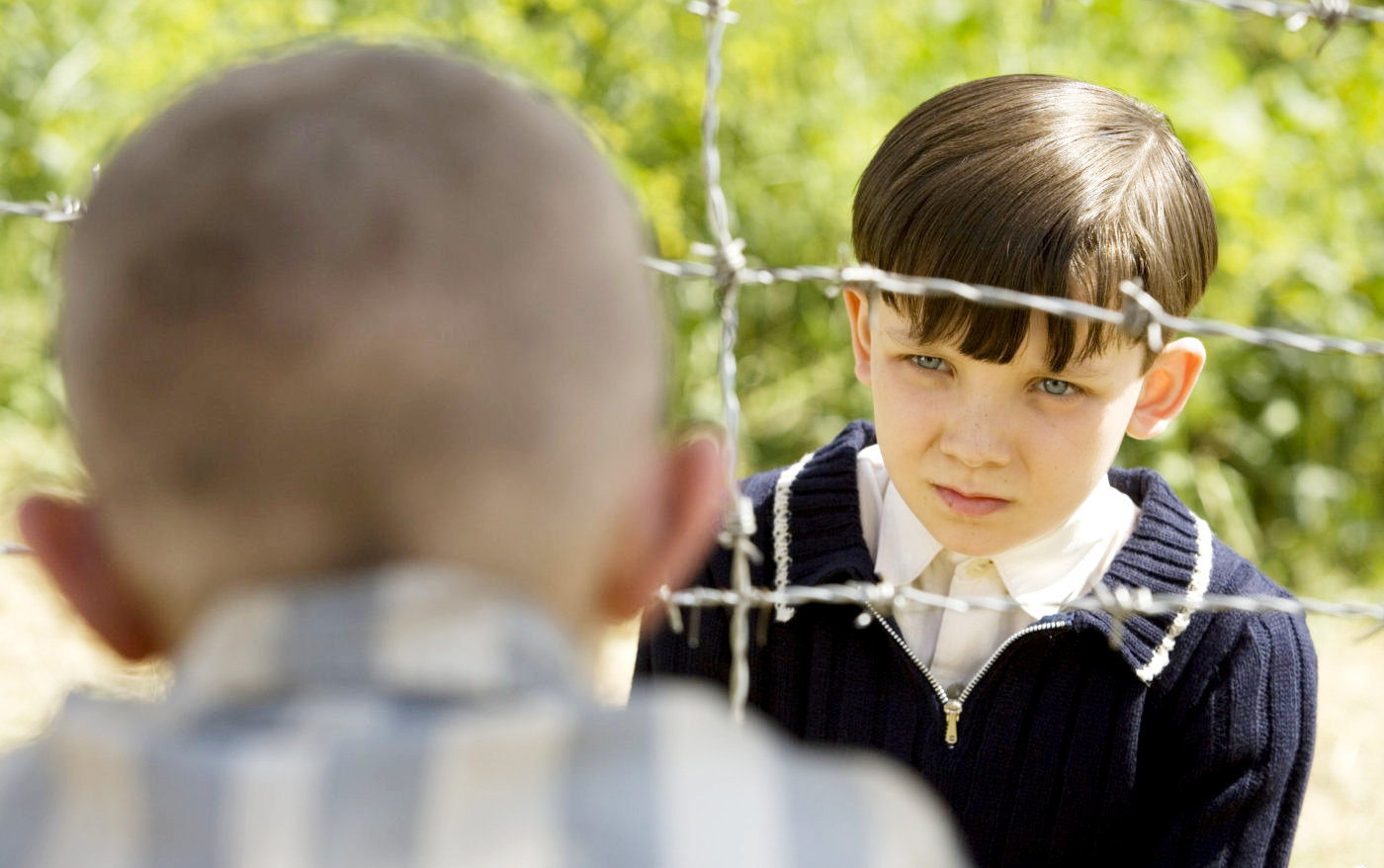
What’s it About? The horrors of the Holocaust during World War II are seen through the eyes of two innocent eight-year-old boys. Bruno is the son of a Nazi who’s been promoted to command an extermination camp, which causes the family to relocate to the countryside. He finds it hard to adjust to life in the country as there’s no one for him to play with, until he comes across a Jewish boy named Shmuel, who’s a prisoner in the camp.
How Does it End? A lack of knowledge and understanding of the world they’re living in causes Bruno to sneak into the camp to help Shmuel look for his missing father. Both boys are herded into the gas chamber with the rest of the inmates where they are all killed by gassing. Bruno’s parents, realizing what’s happened to their son, arrive when it’s too late and cry out in despair.
Why is the Ending Depressing? Any film that looks at the atrocities of World War II is bound to be a tearjerker. And aside from its powerful ending, “The Boy in the Striped Pajamas” does have its flaws. It resorts to audience manipulation in a few instances and takes the point of view of a Nazi family to make its point. Bruno’s naivety and innocence can prove to be frustrating at times. He thinks the concentration camp is a farm and the clothes the inmates wear are pajamas.
As well as accusations about the film’s authenticity, it sometimes feels like it was created solely for its ending. It’s a polarising film to be sure. But whether or not you buy into the story, you can’t deny the impact of the horrific ending as the two boys hold hands, and the prisoners panic and bang on the metal door as they’re gassed and the silence that follows.
8. One Flew Over the Cuckoo’s Nest (1975)
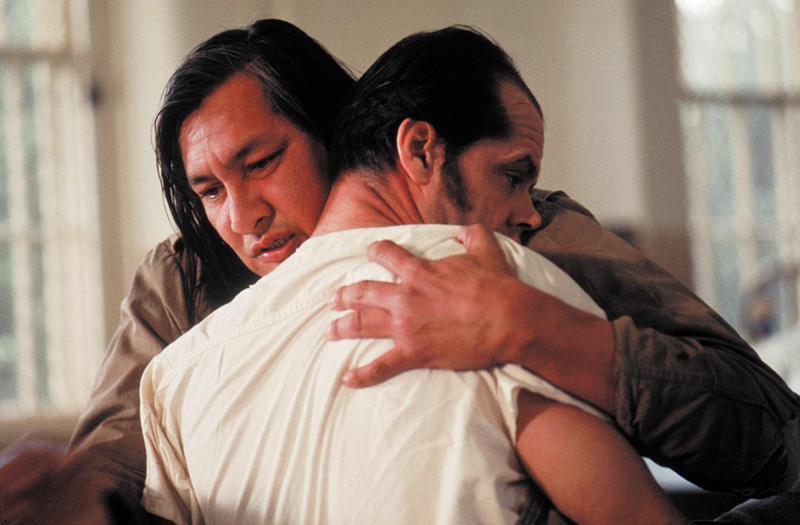
What’s it About? Convicted for statutory rape, McMurphy is sent to a mental hospital for evaluation after acting “crazy” in prison. He soon shakes things up in the ward he’s been put in and comes at odds with the serious Nurse Ratched, who runs things but touches the patient’s lives for better and worse.
How Does it End? After a night of partying and drinking with some of McMurphy’s female friends, they all pass out and wake up to the wrath of Nurse Ratched. The threat of Billy’s parents being told that he had sex with McMurphy’s girl causes him to panic and commit suicide. The troublemaking McMurphy is taken away and lobotomized, and ends up becoming a vegetable. When Chief sees his fate, he smothers McMurphy with a pillow and escapes to freedom.
Why is the Ending Depressing? Just like in “Chinatown,” Jack Nicholson’s seemingly good intentions do more harm than good. Instead of escaping to freedom as planned, he decides to throw a Christmas party for his new friends, which gives them a horrific morning after.
There’s no doubt that McMurphy is crazy, but not the crazy that warrants staying in a mental hospital. In fact, it seems so for most of the men in the ward. They all share problems that most of us have and mirror society as a whole. What’s different is the way we deal with them, and the ending highlights this perfectly.
The debate on mental illness and the ways its patients are treated is a decade’s long discussion that we’ll leave for another time. But the ending does point an unflattering portrait of a system that sometimes does more harm than good. The two deaths signify this clearly. While they’re simply the consequences of a number of actions, they’re just as depressing. However, the film does end on a bittersweet note as the Chief finally manages to break free and run to freedom.
7. The Vanishing (1988)
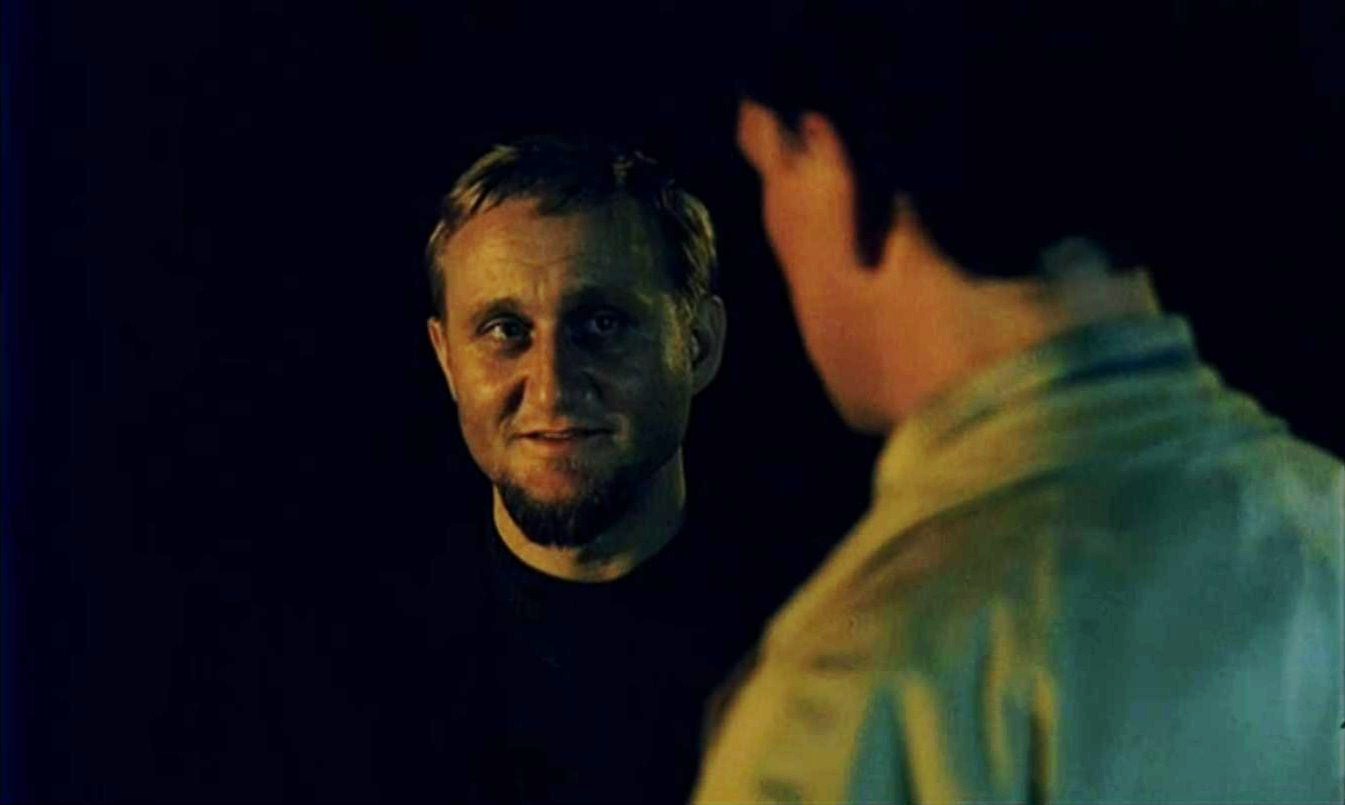
What’s it About? Rex and Saskia are a Dutch couple vacationing in France. When their car runs out of gas, they stop at rest area. While Rex tends to the car, Saskia goes into the store and doesn’t come out. Rex searches for her and fails to find her. He eventually heads back home and is naturally unable to forget her, and becomes obsessed with finding out what happened to her and why.
How Does it End? What’s unique about the film is that the man who abducted Saskia is revealed to the viewer early on. We don’t know how or why he did it. The man eventually approaches Rex after he appears on television and tells him that he kidnapped his girl. He tells Rex he will reveal what happened to his girl if he comes with him.
The man takes Rex to the same rest area Saskia disappeared from and gives him drugged coffee, telling him the only way to know what happened to Saskia is to experience it himself. Rex drinks the coffee and wakes up buried alive in a box underground.
Why is the Ending Depressing? Watching how Rex’s obsession over finding out the truth takes control of his life in every aspect is depressing enough, but the ending takes it even further. It’s easy to sympathize with him, after all. He just wants closure and he finds it in the most unlikely and pessimistic way. The antagonist of the film is not your usual maniacal villain with bloodlust in his eyes. He has unique reasons for doing what he did.
George Sluizer’s direction and tight script was co-written by the author of the novel it’s based on makes for an unconventional film and an ending that stays with you long after the credits have rolled.
6. Grave of the Fireflies (1988)
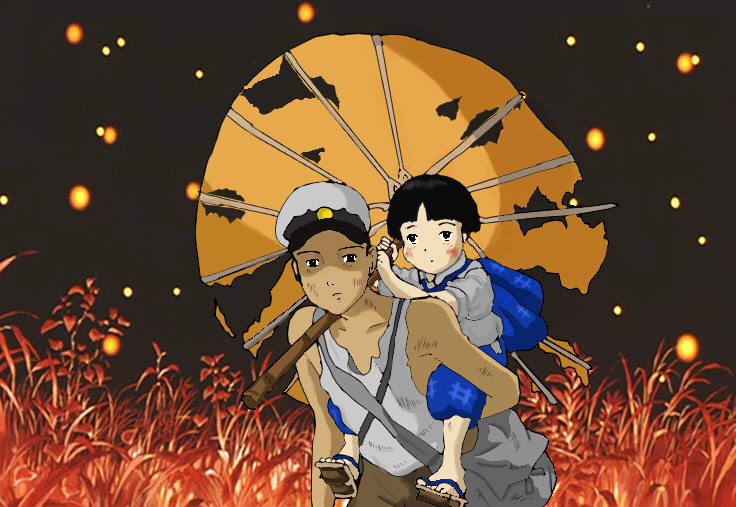
What’s it About? This animated Studio Ghibli gem follows two young siblings desperate struggle to survive during World War II. It’s an unsettling drama of the highest form that’s made even more potent because it’s based on a true story.
How Does it End? With Setsuko suffering from malnutrition, Seita manages to withdraw all the money in their mother’s bank account. As he leaves the bank, he hears of Japan’s surrender and that their father is probably dead as most of Japan’s navy has been sunk. He returns to their shelter with lots of food only to find Setsuko’s condition has worsened. He hurries to cook her a meal, but she dies before he can finish. He later cremates her body with her stuffed doll and later dies from starvation. Their deceased spirits live on with the fireflies after they make it to their destination.
Why is the Ending Depressing? Seeing the effects that war has on the innocent and especially children is what makes “Grave of the Fireflies” so touching. The bond Seita has with his younger sister Setsuko is something anyone with siblings can relate to. He tries his best to look after her but ultimately fails. They are only children, after all. And the fact that they were mostly ignored and practically left to fend for themselves makes the injustice even harder to swallow.
The film is beautifully animated and poetically directed by Isao Takahata, making it one of the most touching films ever made. And the devastating ending, no matter how bittersweet, will completely ruin your day.